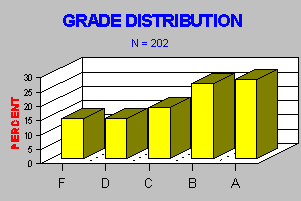
william.vincent@csun.edu

KIN 302 or equivalent and 30 WPM typing skill
Text
Vincent, William J. Computer Applications in Kinesiology, Sixth Edition CSUN Bookstore, January, 1997.
DISKS
Two (3.5 inch 1.44 MB high density) blank disks will be required.
Catalog Description
Significance of the computer in Kinesiology. Introduction to word processing, spreadsheets, data bases and statistical analysis by computer. Examination and analysis of various types of software written for exercise science, physical education and athletics. Elementary programming concepts in BASIC. Application of computer uses for skill and fitness testing in both laboratory and school settings.
Course Objectives
At the conclusion of the course the student will be able to:
1. Identify social, moral, legal, and economic issues involved in computer use in a democratic society.
2. Understand and describe the use of computers in exercise science laboratories and physical education and athletic programs in school settings.
3. Understand and use commercial software to produce word processing documents, spreadsheets, and data bases for application in Kinesiology.
4. Send, and receive E-mail messages.
5. Access the World Wide Web using Netscape software. Find and retrieve information using URL addresses.
6. Describe and make use of software to assist in classroom management functions such as grading, scheduling, budgeting, and inventory analysis.
7. Describe and use commercial computer software to analyze data and calculate statistics typically used in physical education, exercise science and athletic programs.
8. Describe and use the computer to produce sports statistics and game analysis for common sports.
9. Write unique, teacher made computer programs in QUICK BASIC to analyze data for which commercial software program are not available.
| ACTIVITIES | POINTS |
| Class Projects | 15 |
| Lab Assignments | 40 |
| Mid Term Exam. | 65 |
| Final Exam | 80 |
| TOTAL POINTS | 200 |
 GRADE
DISTRIBUTION
GRADE
DISTRIBUTION
| POINTS | GRADE |
| 180-200 | A |
| 165-179 | B |
| 150-164 | C |
| 135-149 | D |
| 0-134 | F |
Note: +/- grading will be used. 185 points = A, 180 = A-, 175 = B+, 170 = B, 165 = B-, etc.